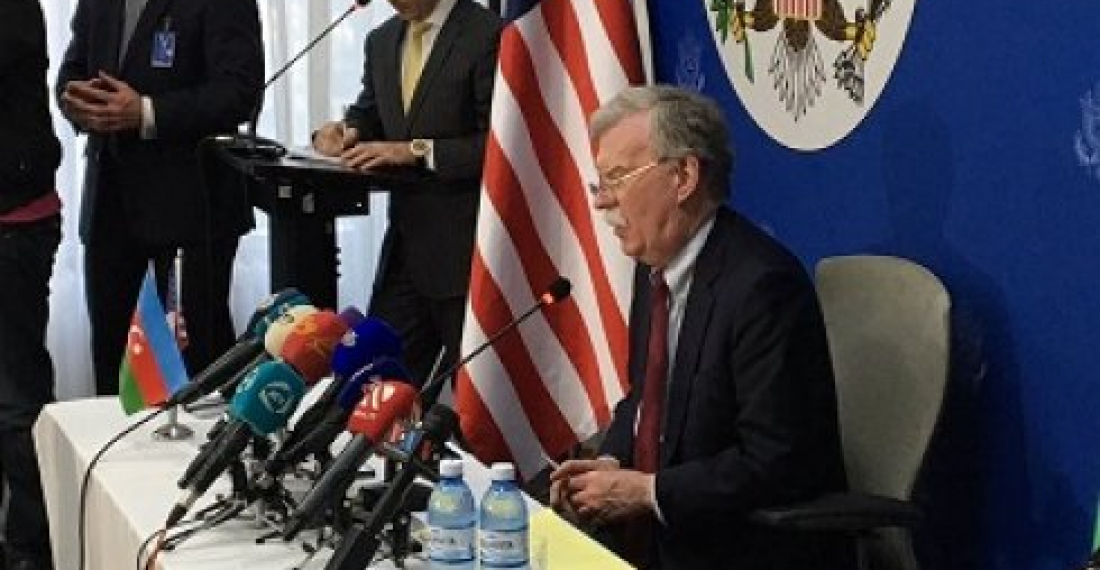US National Security Advisor John Bolton has signalled that there was no new US policy on the issue of Nagorno-Karabakh and that he was in a listening mode when discussing the issue with the leaders of the sides in the conflict during his current visit to the South Caucasus.
“The solution to the conflict is obviously difficult. If it was easy, it would have been solved long ago. Certainly, it was not my intention to come here with a change in US policy or with new suggestions on this issue, but really to learn more about the way things stand. The parties must work together, and finally they must be able to find the solution", Bolton told a press briefing after meeting with the Armenian prime minister Nikol Pashinyan.
Bolton told the press briefing that if the opinion polls are right, and Prime Minister Pashinyan emerges from the forthcoming parliamentary elections with a strong mandate, then that would be the most opportune time to take decisive action for the resolution of the Nagorno-Karabakh conflict.
In Yerevan on Thursday, Bolton described US relations with Armenia as strategic. In Baku the day before, he said the same about US relations with Azerbaijan, yet in both capitals Bolton stopped short of outlining any strategic vision for relations with the region. Today Bolton is in Georgia on the last lap of his regional tour of the South Caucasus. Expectations are high that there he will say a bit more about how the US plans to approach the region in the future. A bit more perhaps then he said in his tweets from Baku and Yerevan (below)
Great stop in Azerbaijan. Thank you to President Aliyev for his warm welcome. We had positive discussions on a wide range of regional and energy security issues. pic.twitter.com/PGaRrVSYsY
— John Bolton (@AmbJohnBolton) October 24, 2018
Yesterday I had a nice visit to Armenia, an important friend in the region. I enjoyed productive conversations with the Prime Minister and his national security team.
— John Bolton (@AmbJohnBolton) October 26, 2018
source: commonspace.eu
photo: US National Security Advisor John Bolton at a press brieifng in Yerevan on 25 October 2018 (picture courtesy of the US Embassy to Armenia)







